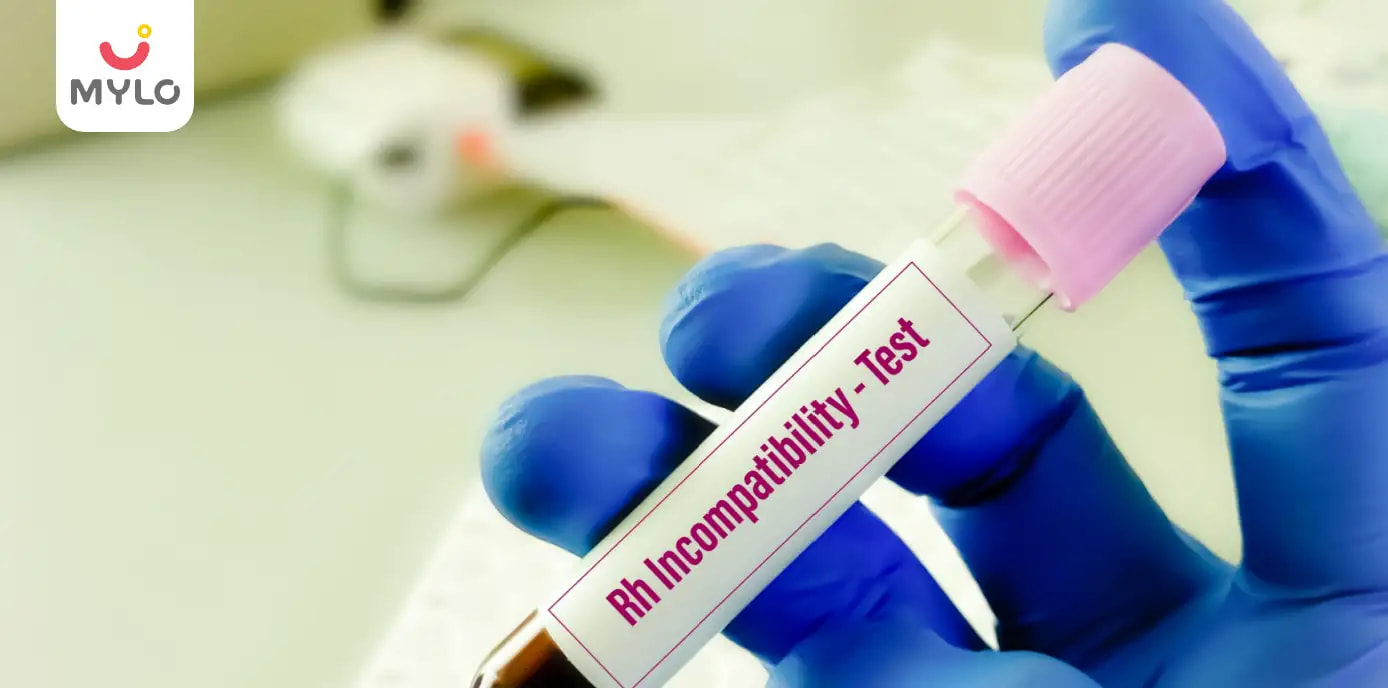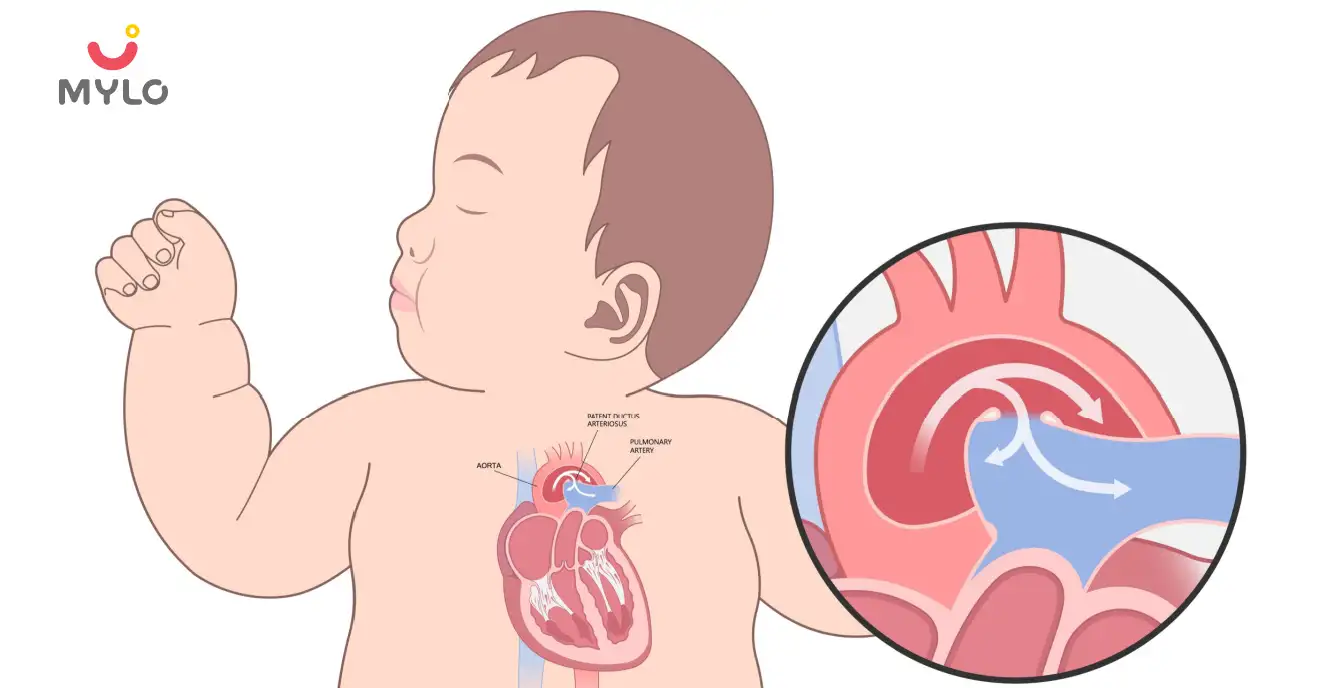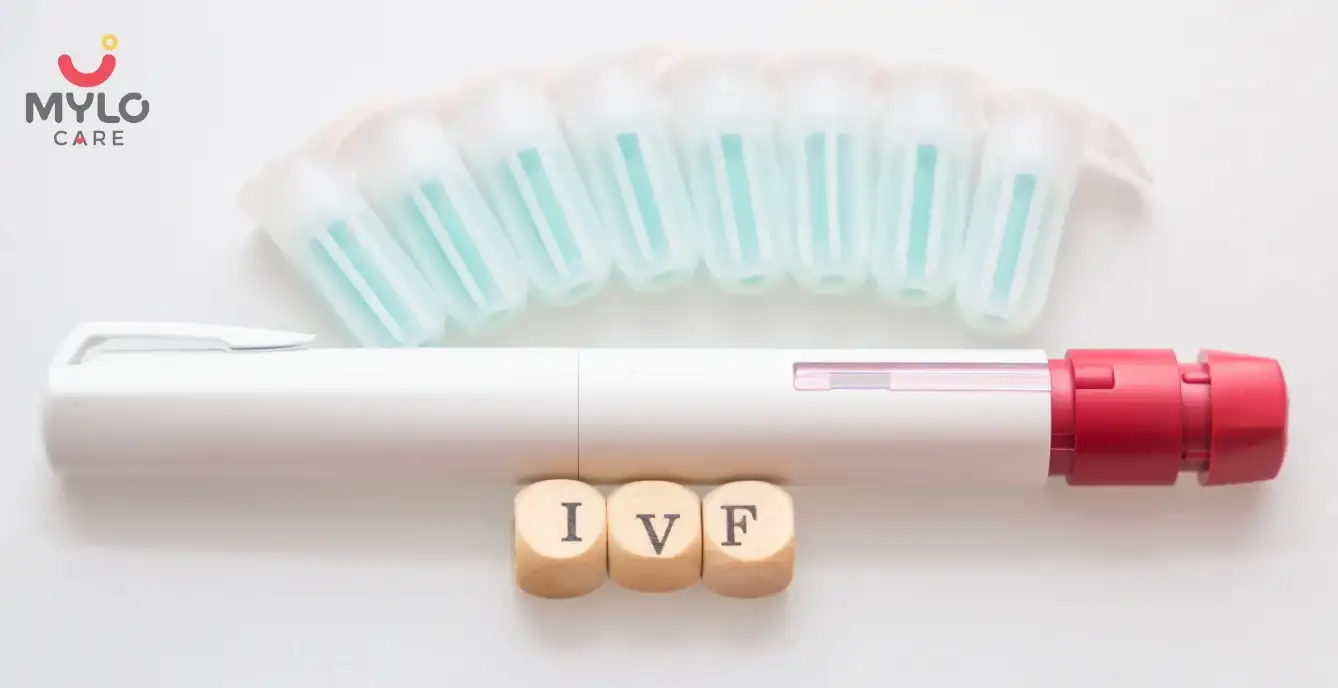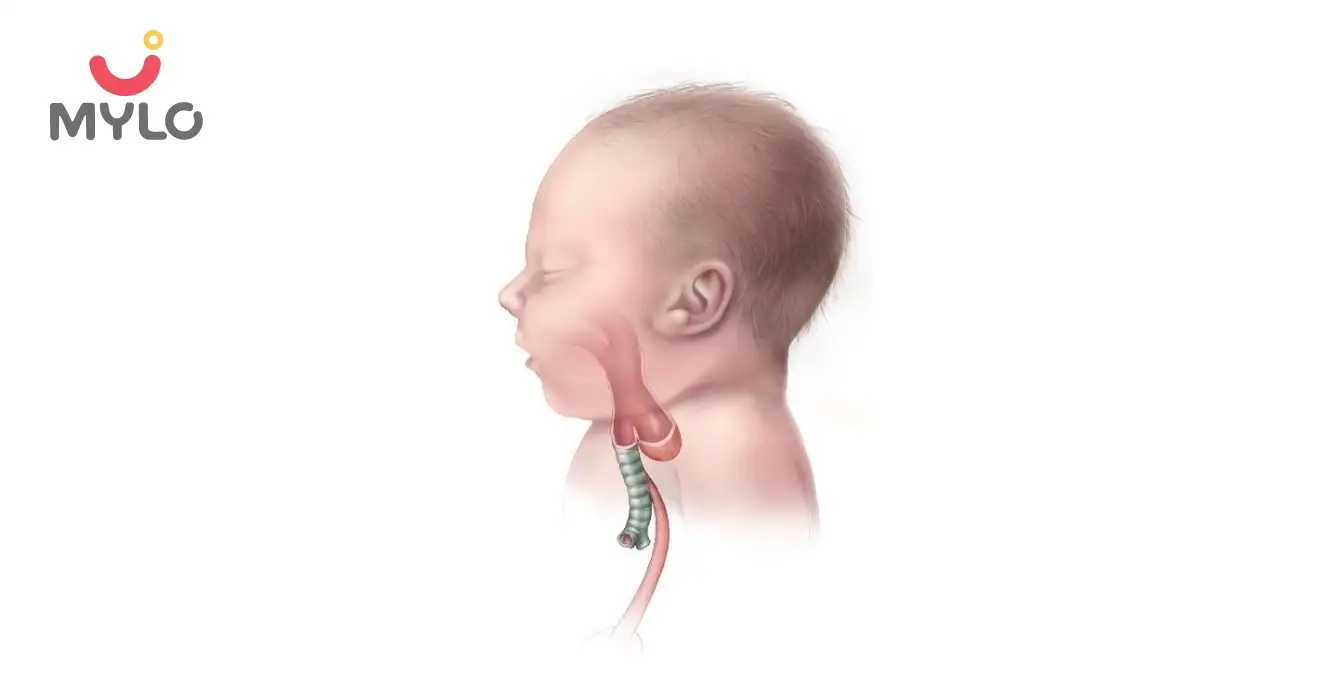Home

Pregnancy Complications

RH Incompatibility in Pregnancy - Causes, Symptoms & Treatments
In this Article

Pregnancy Complications
RH Incompatibility in Pregnancy - Causes, Symptoms & Treatments
Updated on 19 May 2023
Pregnancy is a magical thing, and delivering a healthy baby is a miracle. However, not all pregnancies are perfect or easy. Pregnancy complications can affect the pregnant mother, the unborn child, or both. One such complication associated with it is Rh incompatibility.
What Is Rh Incompatibility?
Rh incompatibility occurs when a pregnant woman and her unborn foetus have different Rh (Rhesus) protein factors. It arises when a woman is Rh-negative and her baby is Rh- positive. The Rh factor is a unique protein found on the surface of your red blood cells. You inherit your Rh factor type from your parents, like your blood type. Most individuals are Rh-positive, but a small proportion of people are Rh-negative, which indicates they lack the Rh protein.
What Is the Rh Factor?
Rh factor (Rhesus factor) is a specific type of protein on the outside or surface of your red blood cells. You inherit the protein from your biological parents. You're Rh-positive if you have the protein. You're Rh-negative if you don't have the protein. The majority of the population, about 85%, is Rh-positive.
During pregnancy, complications may arise if you're Rh-negative and the baby is Rh-positive, which is called Rh-factor incompatibility.
Why Is the Rh Factor Important?
Your Rh factor doesn't affect your overall health, but it is necessary to know your Rh status if you're pregnant. If an Rh-negative mother and her baby are Rh-positive, then the pregnant woman's body will move toward the Rh-positive protein as a foreign object if her immune system is exposed to it.
It implies that if the blood cells from the baby cross your bloodstream, which can occur during pregnancy, labor, or delivery, your immune system will produce antibodies against your baby's red blood cells. Antibodies are part of your immune system and attack and destroy foreign substances.
What Are The Causes Of Rh Incompatibility?
Rh incompatibility occurs during pregnancy when a woman is Rh-negative and has a foetus with Rh-positive blood. Rh incompatibility causes your immune system to react differently and generate antibodies. These antibodies cause an immune system attack against the foetus' red blood cells, which your body misidentifies as foreign objects, a condition known as Rh sensitization.
Your doctor can prevent this by giving you a shot(injection) of immune globulin. During pregnancy, you don't share blood with the fetus. However, a minor amount of fetal blood can mix with your blood during labour and delivery. It can also occur during:
-
Tests such as amniocentesis and chronic villus sampling (CVS).
-
Damage or trauma to your abdomen.
-
Initial pregnancy complications like miscarriage or ectopic pregnancy.
-
After the external cephalic version (ECV), a maneuver to reverse a baby breach.
What Are The Symptoms Of Rh Incompatibility?
Rh incompatibility symptoms in your unborn foetus can range from mild to life-threatening. When antibodies attack your baby's red blood cells, Hemolytic disease can happen, which suggests your baby's red blood cells are destroyed. When your baby's red blood cells are destroyed, bilirubin will arise and build up in their bloodstream. Bilirubin is a chemical developed from the breakdown of red blood cells. Too much bilirubin indicates that the liver, responsible for processing old blood cells, is having a problem.
Your newborn may have one or more of the following symptoms if their bilirubin levels are high after birth:
-
Jaundice, yellowing of the skin and whites of the eyes.
-
Lethargy and low muscle tone.
However, these symptoms will recede after completing the treatment for Rh incompatibility.
How Does Rh Factor Affect Pregnancy?
If a woman is Rh-negative and her foetus is Rh-positive, her body will recognize the Rh-positive protein as a foreign substance if it is exposed to her immune system. It implies that if the blood cells from the baby cross your bloodstream, which can occur during pregnancy, labor, or delivery, your immune system will produce antibodies against your baby's red blood cells. Antibodies are part of your immune system and attack and destroy foreign substances.
If you have an Rh-negative blood type, you're considered "sensitized" to positive blood types once your body has generated these antibodies, which suggests that your body might send these antibodies across the placenta to attack your baby's red blood cells. Your placenta is the organ that connects you and the baby.
Who Is At Risk For Rh Incompatibility?
Any woman who is Rh-negative and is carrying a child with someone who is Th-positive or with an unknown Rh status is at risk for rhesus incompatibility. However, provided the low percentage of people with Rh-negative blood types, this doesn't occur often.
How Is Rh Incompatibility Treated?
Rh incompatibility treatment focuses on preventing the effects. In mild cases, the baby can be treated after birth with blood transfusions, hydrating fluids, electrolytes or phototherapy. Phototherapy involves keeping your baby near fluorescent lights to help reduce the bilirubin in their blood.
These procedures may be repeated until the Rh-negative antibodies, and excess bilirubin has been eliminated from your baby's blood. Whether it must be reiterated depends on the severity of your baby's situation.
If you're pregnant and your doctor infers that you've already acquired antibodies against your baby, your pregnancy will be closely monitored. You can also prevent the impacts of Rh incompatibility by receiving an injection of Rh immune globulins during your first trimester, during a miscarriage, or while having any bleeding during your pregnancy.
How Is Rh Incompatibility Diagnosed?
A blood test determines your Rh status, which will be done at your first prenatal appointment with your doctor. If you're Rh-negative, your spouse may also be tested. If your spouse is also Rh-negative, you don't have anything to bother about. If your spouse is Rh-positive and you're Rh-negative, your doctor will look for indications of Rh incompatibility.
A positive indirect Coombs test is an indication of Rh incompatibility. This test uses a blood sample to look for cell-destroying antibodies in your blood's plasma.
Higher than normal levels of bilirubin in your baby's blood is an indication of Rh incompatibility. In a full-term baby who is less than 24 hours old, the bilirubin levels should be less than 6.0 milligrams per deciliter. Signs of red blood cell destruction in your baby's blood may signify Rh incompatibility, which the shape and structure of the red blood cells can deduce when examined under a microscope.
Are There Any Complications?
Severe cases in which the effects of Rh incompatibility aren't prevented can result in serious complications, which include:
-
Brain damage to the baby, known as kernicterus.
-
Fluid accumulation or swelling in the baby.
-
Difficulty with mental function, movement, hearing and speech.
-
Strokes, anaemia and heart failure.
Can Rh Incompatibility Be Prevented?
Rh incompatibility is preventable. If you are pregnant and have an Rh-negative blood type, you should consult your doctor to determine the best plan. If the child's father is Rh positive or his blood type is unknown, obtaining preventive treatment with immune globulins will prevent serious effects.



Written by
Roohi Kalra
Get baby's diet chart, and growth tips

Related Articles
Related Questions
Influenza and boostrix injection kisiko laga hai kya 8 month pregnancy me and q lagta hai ye plz reply me

Hai.... My last period was in feb 24. I tested in 40 th day morning 3:30 .. That is faint line .. I conculed mylo thz app also.... And I asked tha dr wait for 3 to 5 days ... Im also waiting ... Then I test today 4:15 test is sooooo faint ... And I feel in ma body no pregnancy symptoms. What can I do .

Baby kicks KB Marta hai Plz tell mi

PCOD kya hota hai

How to detect pcos

RECENTLY PUBLISHED ARTICLES
our most recent articles

Symptoms & Illnesses
Patent Ductus Arteriosus (PDA) Symptoms & Treatment

Care for Baby
Why Babies Cry After Birth?

In Vitro Fertilization (IVF)
IVF Process Step by Step Timeline: What to Expect During Your Fertility Journey

Symptoms & Illnesses
Tracheoesophageal Fistula: Causes, Symptoms, Risks & Treatment

Growth & Development
Stillbirth: Cause, Symptoms, Risks & Prevention

skin care
Giant Congenital Melanocytic Nevus: Causes, Symptoms, & Treatment
- Tokophobia: How to Manage Your Phobia of Pregnancy & Childbirth
- Low BP in Pregnancy: Symptoms, Effects & Treatments
- Helping your twins to sleep at the same time
- Baby Brain Development: What You Should Know
- Tummy Tuck (Abdominoplasty) Procedure, Risks, Preparation & Recovery
- Spina Bifida: Causes, Symptoms & Treatment
- Diastasis Recti: Causes, Symptoms, Risks & Preventions
- Opioid Overdose, Risk & Prevention
- Is Pregnancy After 35 Right for You? A Comprehensive Guide
- Clubfoot (Talipes Equinovarus): Meaning, Symptoms & More
- RSV (Respiratory Syncytial Virus): Symptoms, Causes & Treatment
- Loose Vagina: Learn How To Tighten Your Vagina Naturally
- Umbilical Cord Prolapse Causes, Symptoms & Treatment
- Bipolar Disorder: Causes, Symptoms, Risks & Treatment


AWARDS AND RECOGNITION

Mylo wins Forbes D2C Disruptor award

Mylo wins The Economic Times Promising Brands 2022
AS SEEN IN

- Mylo Care: Effective and science-backed personal care and wellness solutions for a joyful you.
- Mylo Baby: Science-backed, gentle and effective personal care & hygiene range for your little one.
- Mylo Community: Trusted and empathetic community of 10mn+ parents and experts.
Product Categories
baby carrier | baby soap | baby wipes | stretch marks cream | baby cream | baby shampoo | baby massage oil | baby hair oil | stretch marks oil | baby body wash | baby powder | baby lotion | diaper rash cream | newborn diapers | teether | baby kajal | baby diapers | cloth diapers |




